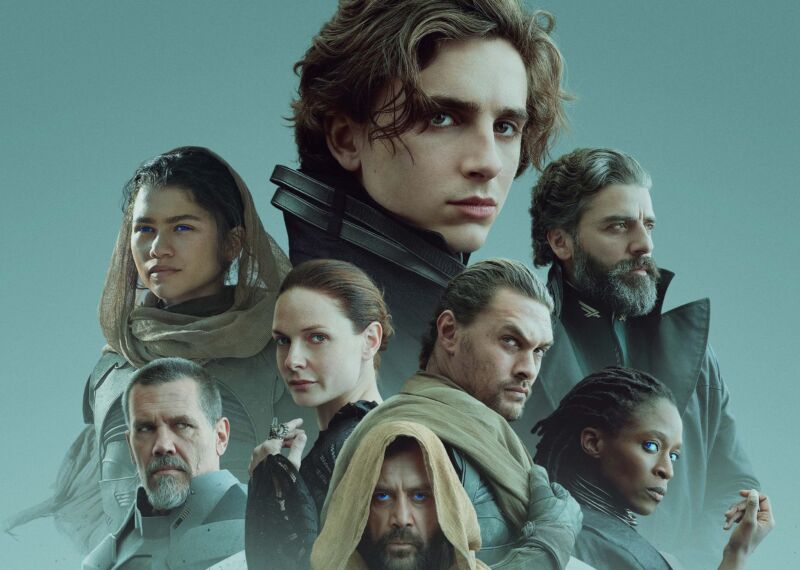
I left my first screening of Dune (2021) convinced that I would watch it again soon.
For a film that spends much of its time in a barren desert wasteland, Dune's cinematography consistently dazzles. And despite a sizable cast of seemingly important characters, Dune does a good job establishing empathy and likability across the board—without losing the story's thread. Lead actor Timothée Chalamet also comfortably surmounts whatever massive expectations series fans might have about the Dune universe's latest "chosen one."
But that's not to say it's a perfect or even great film—a fact that shouldn't necessarily ring alarm bells for anyone familiar with David Lynch's cult-favorite effort. And while Denis Villeneuve's ambitious take is certainly anchored in a familiar story, marked by identical storytelling beats, it works hard to differentiate itself from the 1984 film, as if to make it easier for fans to love both of them.
The new Dune has something for everyone to embrace, gasp at, sink their teeth into, and be utterly annoyed or puzzled by. Something so bold yet mixed feels all too appropriate for a beloved but unwieldy storytelling series like Frank Herbert's.
From here on out, expect spoilers—and saltiness about the ending
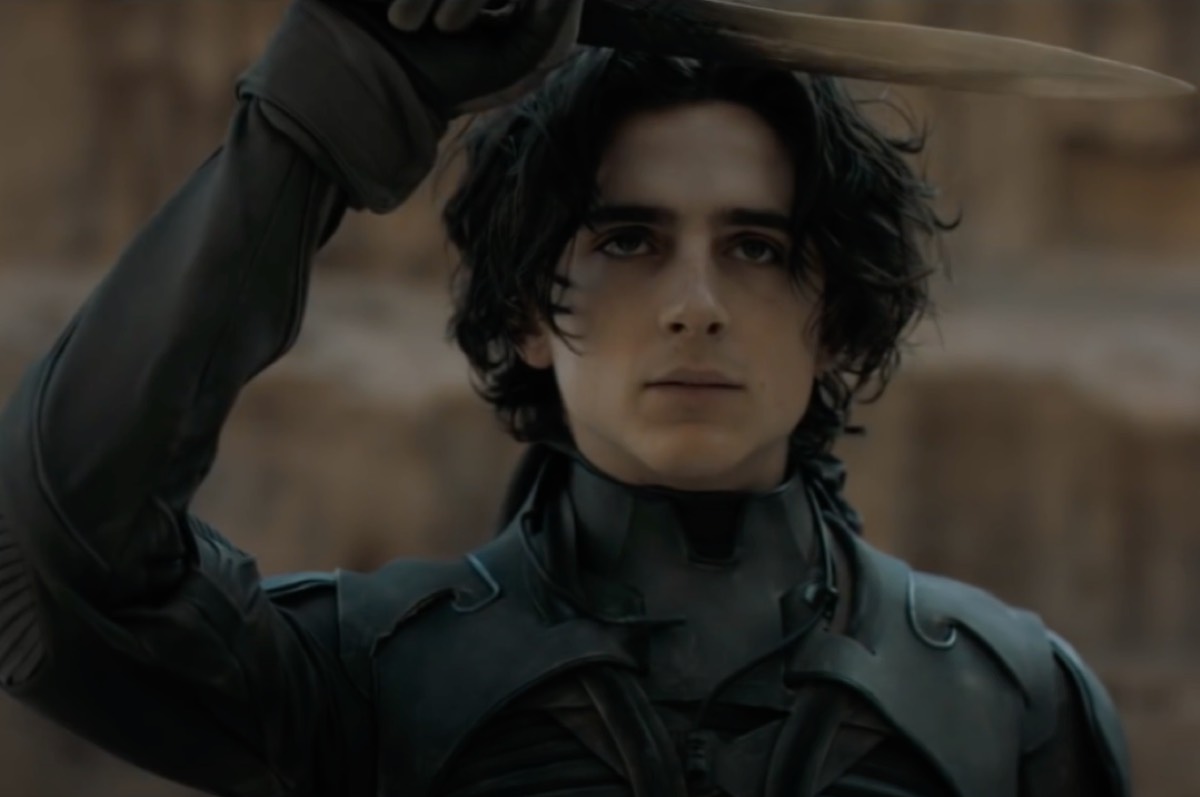 Paul (Timothée Chalomet), the heir of House Atreides, salutes you.
Paul (Timothée Chalomet), the heir of House Atreides, salutes you.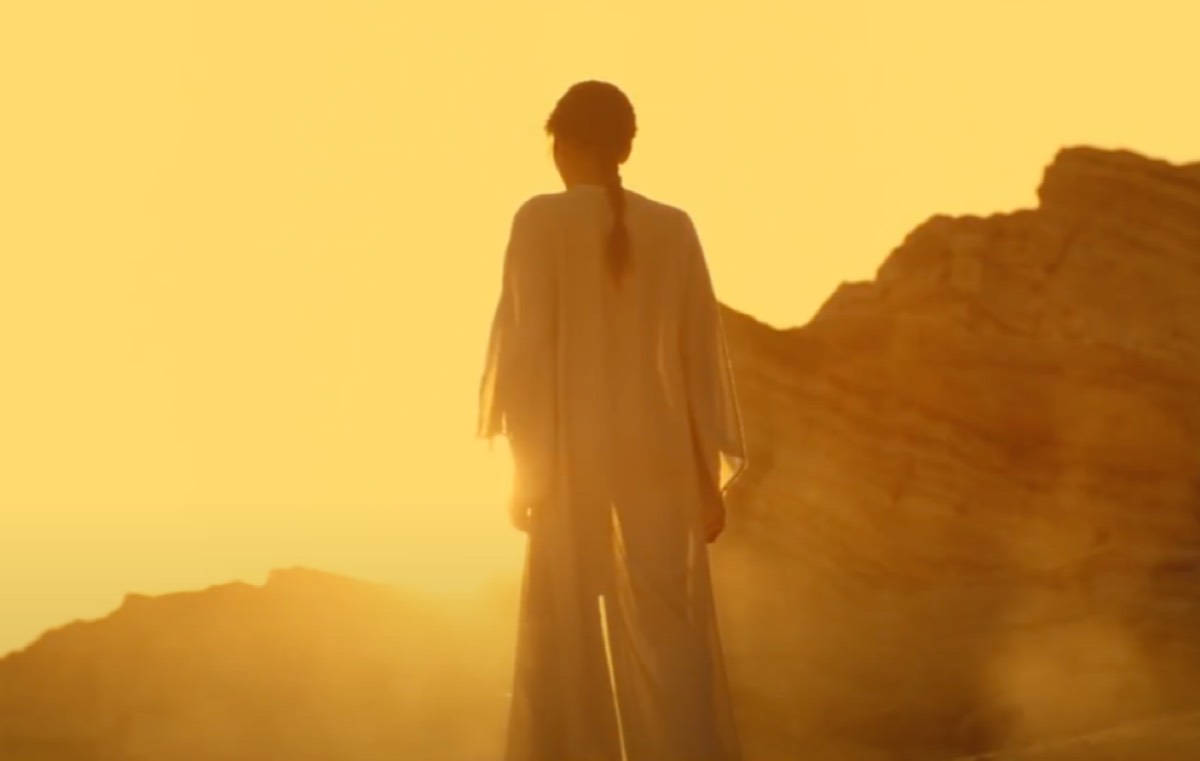 A vision of a mysterious woman on a desert planet.
A vision of a mysterious woman on a desert planet.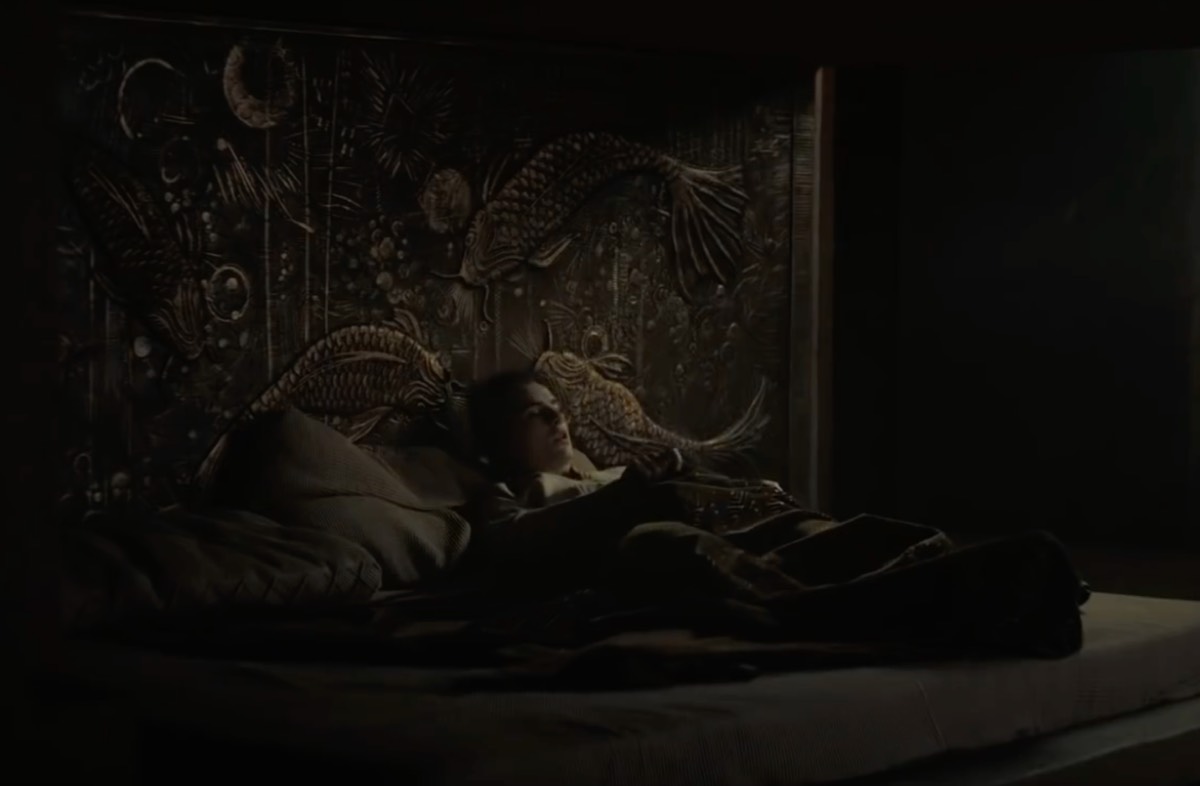 Paul Atreides (Timothée Chalamet) wonders what his dreams might mean.YouTube/Warner Bros.
Paul Atreides (Timothée Chalamet) wonders what his dreams might mean.YouTube/Warner Bros.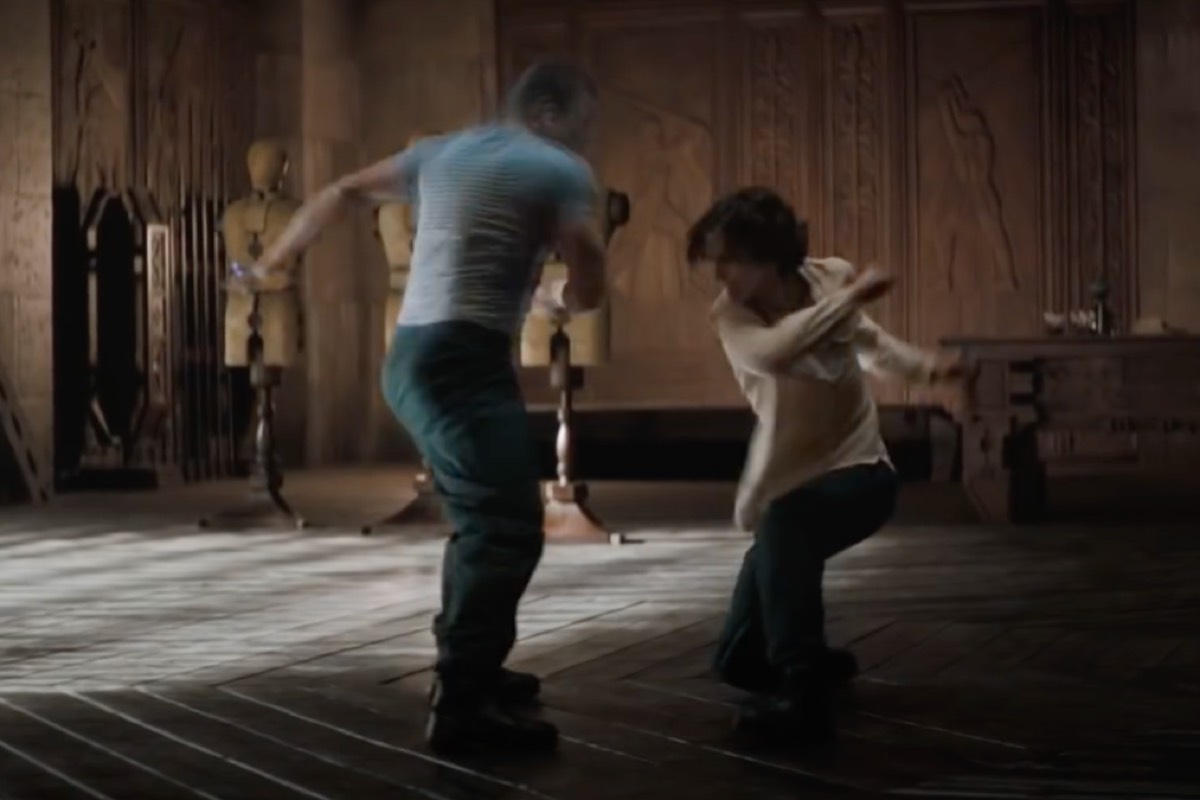 A spot of combat training.YouTube/Warner Bros.
A spot of combat training.YouTube/Warner Bros.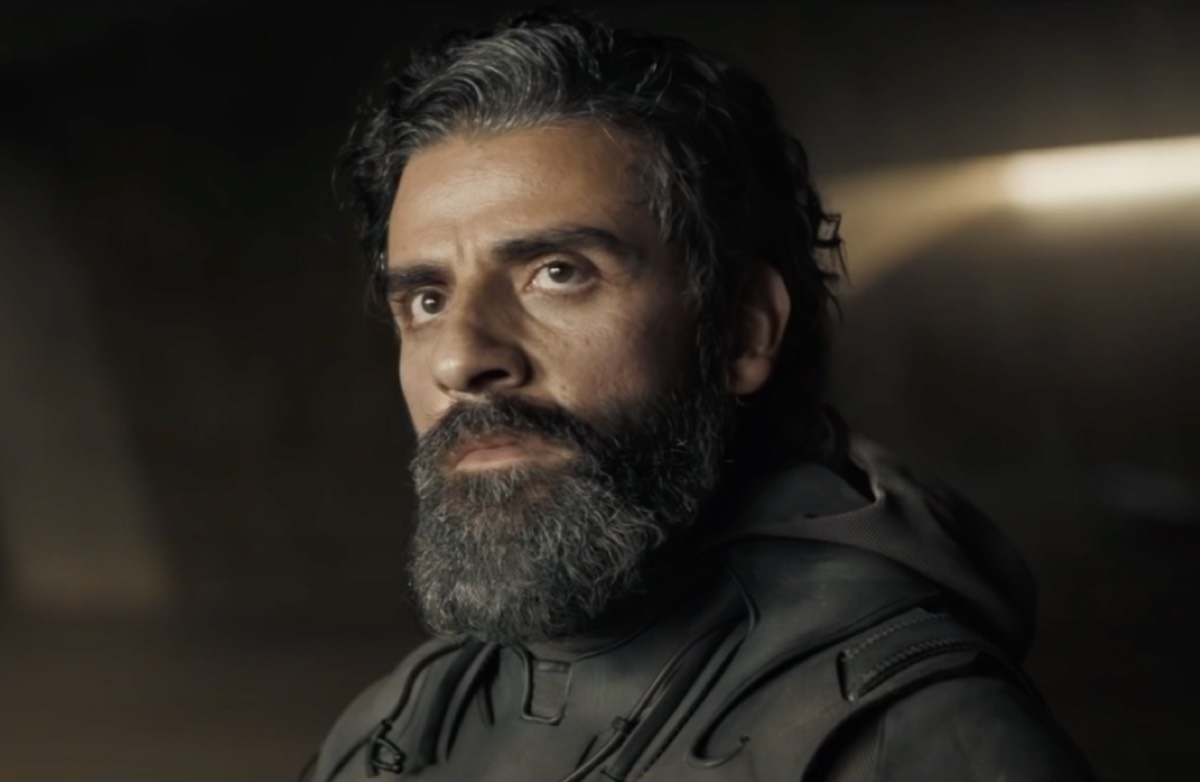 Oscar Isaac plays Duke Leto Atreides.YouTube/Warner Bros.
Oscar Isaac plays Duke Leto Atreides.YouTube/Warner Bros.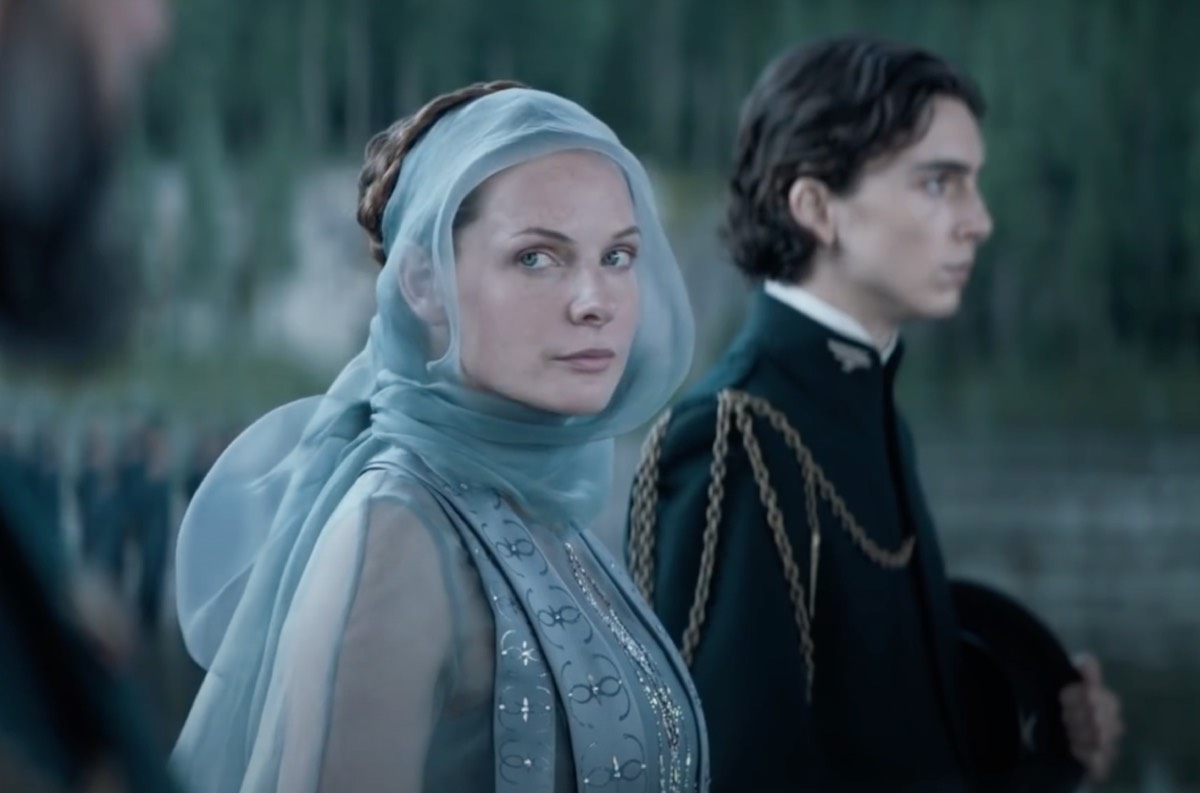 Rebecca Ferguson plays Lady Jessica, the Duke's Bene Gesserit concubine.YouTube/Warner Bros.
Rebecca Ferguson plays Lady Jessica, the Duke's Bene Gesserit concubine.YouTube/Warner Bros.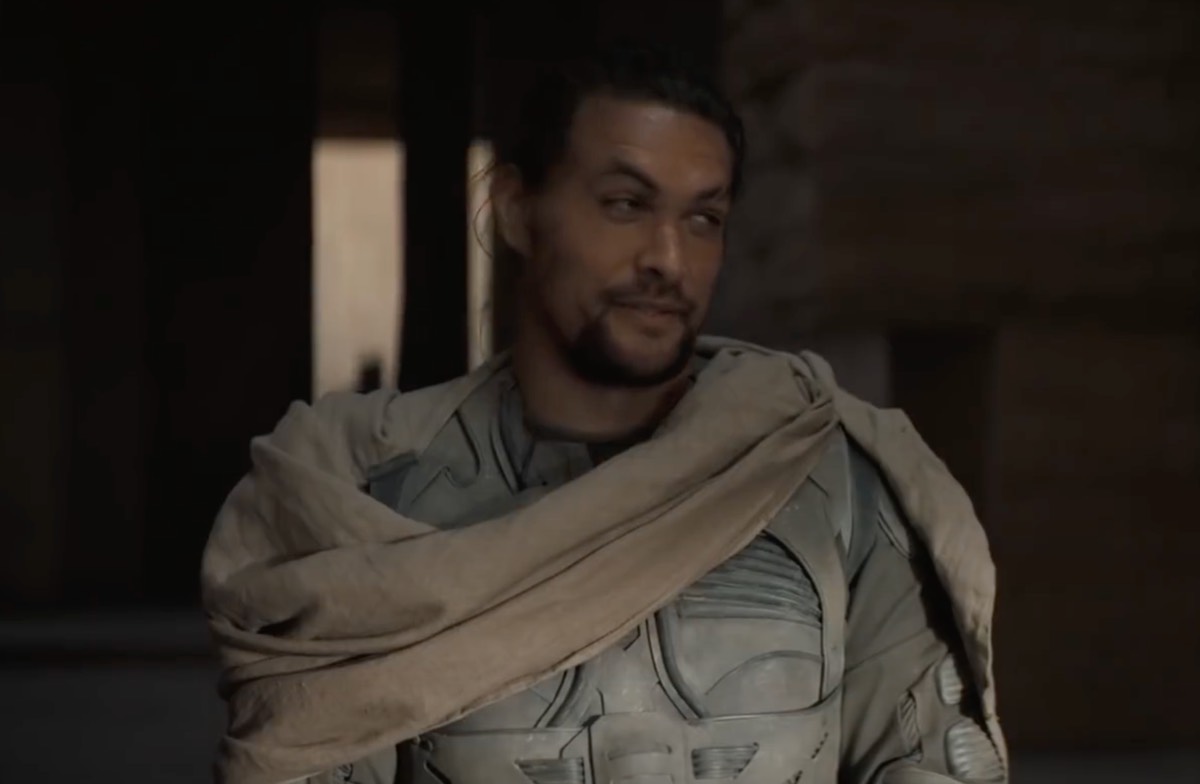 Jason Momoa is welcome casting for Duncan Idaho.YouTube/Warner Bros.
Jason Momoa is welcome casting for Duncan Idaho.YouTube/Warner Bros.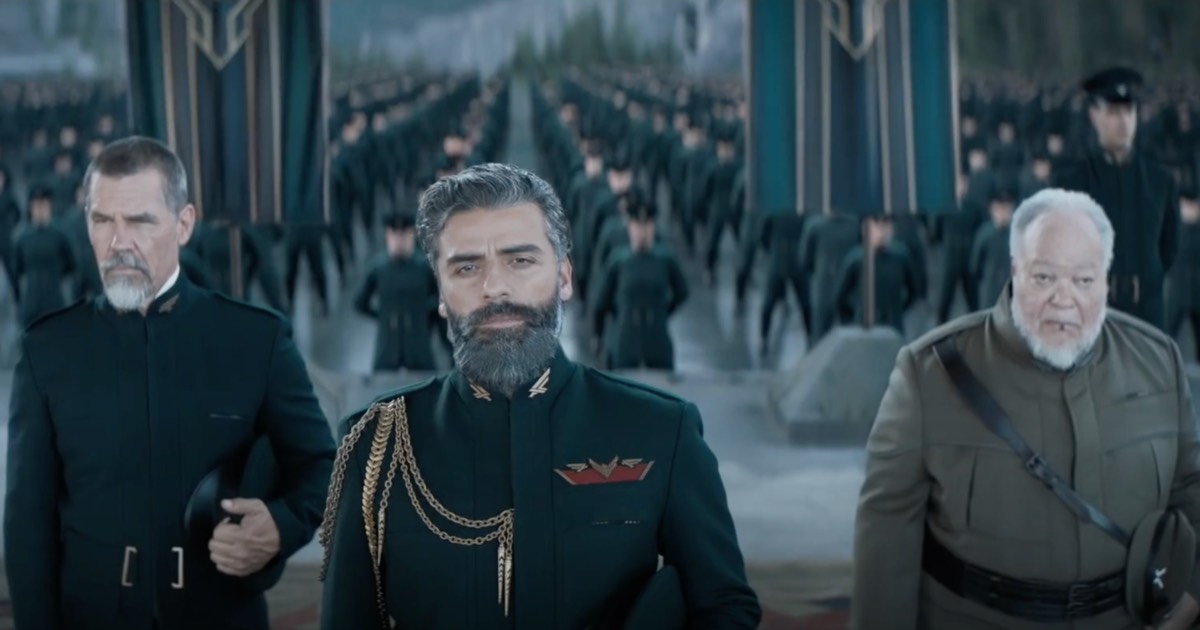 Greeting visitors in state.YouTube/Warner Bros.
Greeting visitors in state.YouTube/Warner Bros.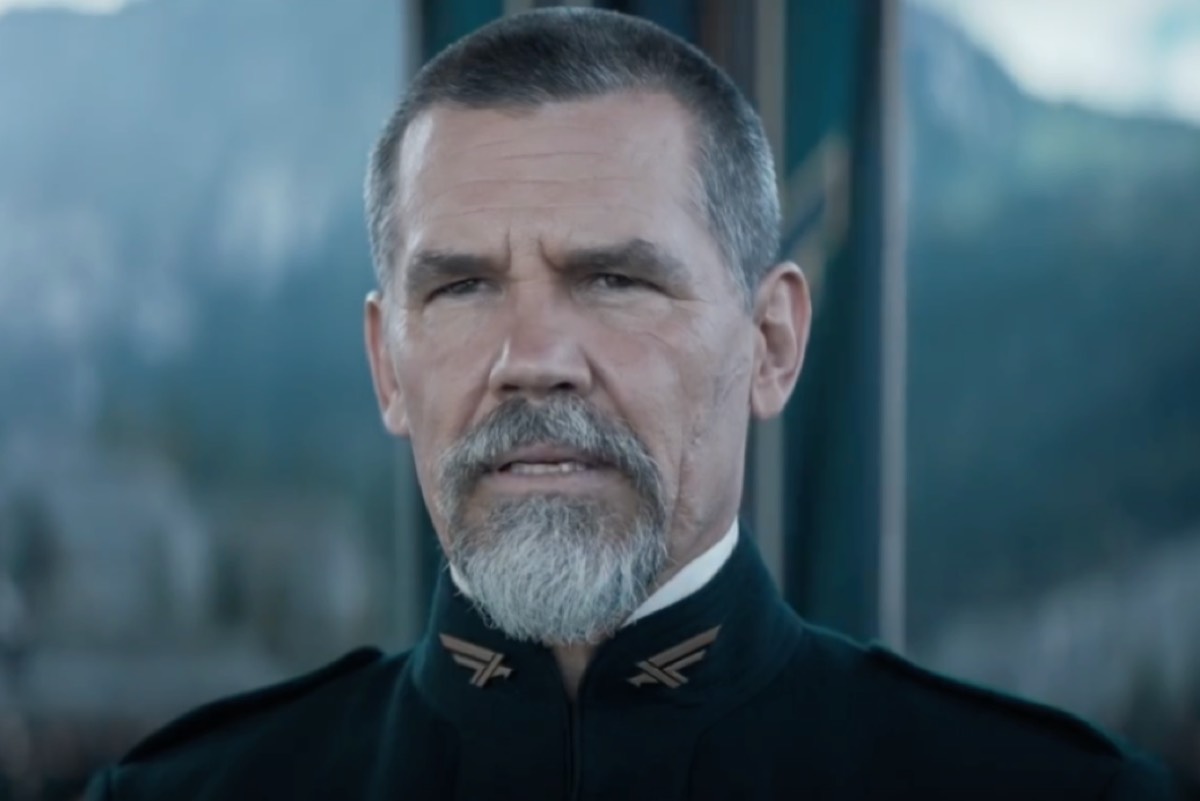 This is Gurney Halleck's (Josh Brolin) smiling face.YouTube/Warner Bros.
This is Gurney Halleck's (Josh Brolin) smiling face.YouTube/Warner Bros.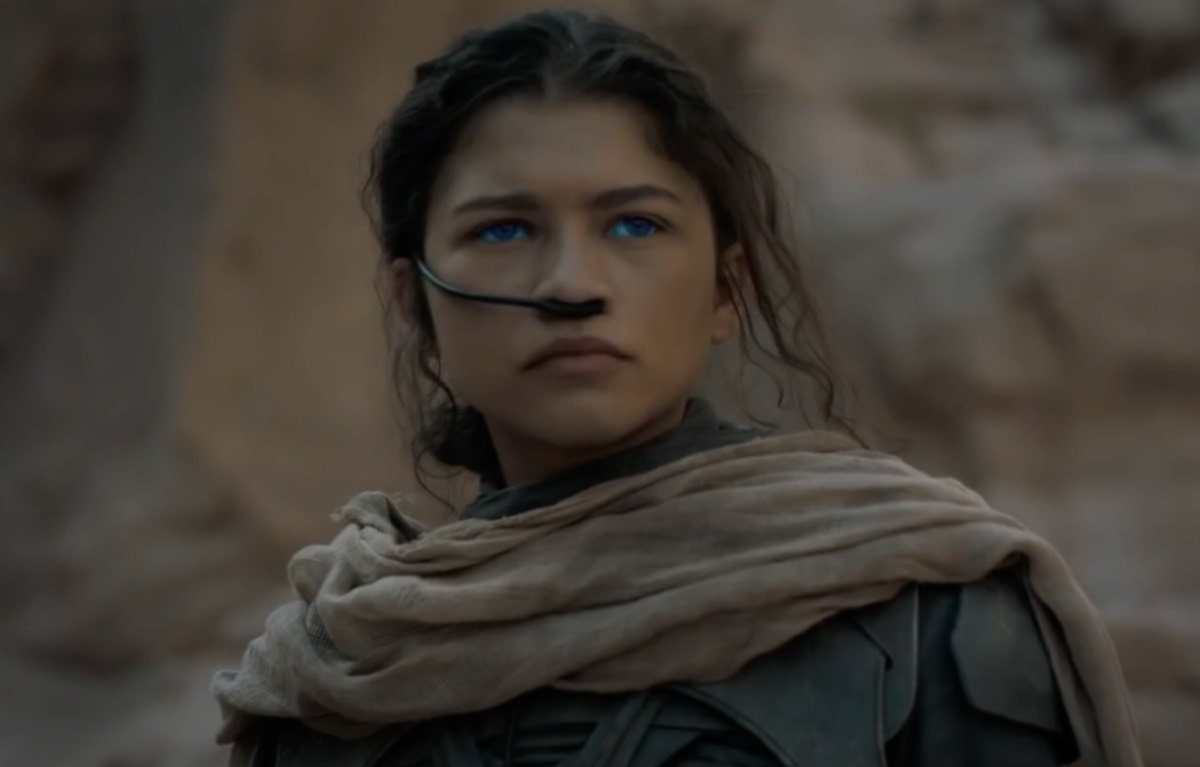 Zendaya plays Chani, the woman from Paul's visions.YouTube/Warner Bros.
Zendaya plays Chani, the woman from Paul's visions.YouTube/Warner Bros.
We'll start at the ending, because if you're invested in Dune at all, you've likely already heard about how this film ends. Be warned: As a review of the latest Dune remake, this review will include plot spoilers. Now is a good time to stop if you've somehow missed all things Dune since the franchise's first book came out in 1965.
The new film, which was slated to launch as far back as November of last year, is advertised on posters as Dune, but as the opening credits roll, its true title emerges: Dune, Pt. 1. This is likely the moment viewers will remember the film's 2 hour 35 minute runtime and wonder how its plot might shake out, as compared to Lynch's take, which somehow blew through Herbert's entire first tome in only 137 minutes.
Arguably the most crucial difference is when Villeneuve's version stops: at a far-from-pivotal moment. Paul (Chalamet) and his mother, Jessica (Rebecca Ferguson, multiple Mission: Impossible films), have escaped great peril and fled alone into the sands of the planet Arrakis, also known as Dune, when they're happened upon by mysterious and anxious Fremen warriors. The sequence that follows is one that Lynch filmed but the original theatrical cut skipped: Paul's deadly duel against a warrior named Jamis, who had appeared in Paul's dreams. One of the two men must die, Jamis insists.
As an authentic representation of the original novel's conflict, this scene is arguably fine in isolation. It's a reasonable morsel of Paul's progression from confused, uncertain protagonist to something much bigger. But as a climactic, film-ending battle, it lands like a wet, spice-filled sock. In this scene, his mother narrates its import, informing viewers that Paul has never killed anyone before. Yet maybe 25 minutes earlier, he and his mother incapacitated and killed their captors, which neuters this tell-don't-show attempt to give the film's final, stabbing thrust more weight.
The tricky guesswork of box-office economics and HBO Max
Worse, the rest of Dune does very little to sell how important or tone-changing this single battle might be. Paul clearly has a ways to go to bond with and take charge of this world's Fremen population. The glimpses we get of Paul’s lucid dreams suggest he might die in this fight, and he does—figuratively. Yet the scene doesn’t end with him appearing reborn as a new man. Instead, it lands with the soft sound of closing a book before going to bed, not the hard slam of a riveting cliffhanger.
This is probably the point when Villeneuve, sitting next to you in a theater, might whisper, "Don't forget, this is only part one! There's more to come!" But we don't know that for sure.
Warner Bros. has yet to formally greenlight production of Dune Pt. 2, and the project has lost an entire year of momentum to a COVID-induced delay. Box-office receipts are promising in regions where Dune has already premiered, but it's unclear how the Warner Bros. empire, currently mid-acquisition, will weigh the film's performance in the US, where it launches in both theaters and HBO Max on the same day.
What's the magic number of ticket sales and subscribers that will excite the bean counters enough to sign the right checks and get Dune Pt. 2 in the works? That rhetorical question, sadly, might affect how you feel about Pt. 1's ending. Its abruptness, among other things, relegates the character of Chani (Zendaya, various Spider-Man films) to brief, hazy flashes in Paul's dreams. Should Pt. 2 never get made, Zendaya will forever be the Dune character who appeared almost entirely as a loop of roughly 20 seconds of repeating visions. And that says nothing of the folks who come to this year's film hoping to see some wicked sandworm-riding sequences. (In Pt. 1, we only get the tiniest hint of this mode of transportation.)
Back to Paul and Jessica
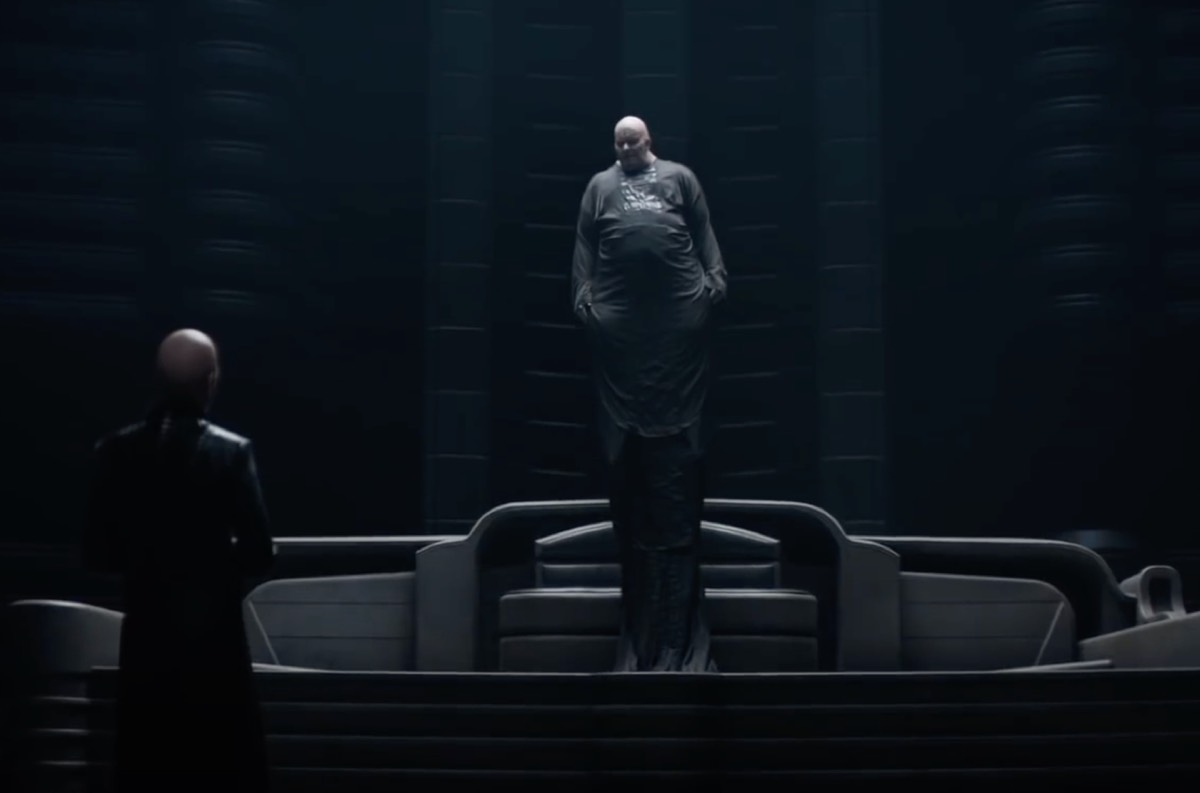 You don't need a prophetic vision to know this dude is bad news.
You don't need a prophetic vision to know this dude is bad news.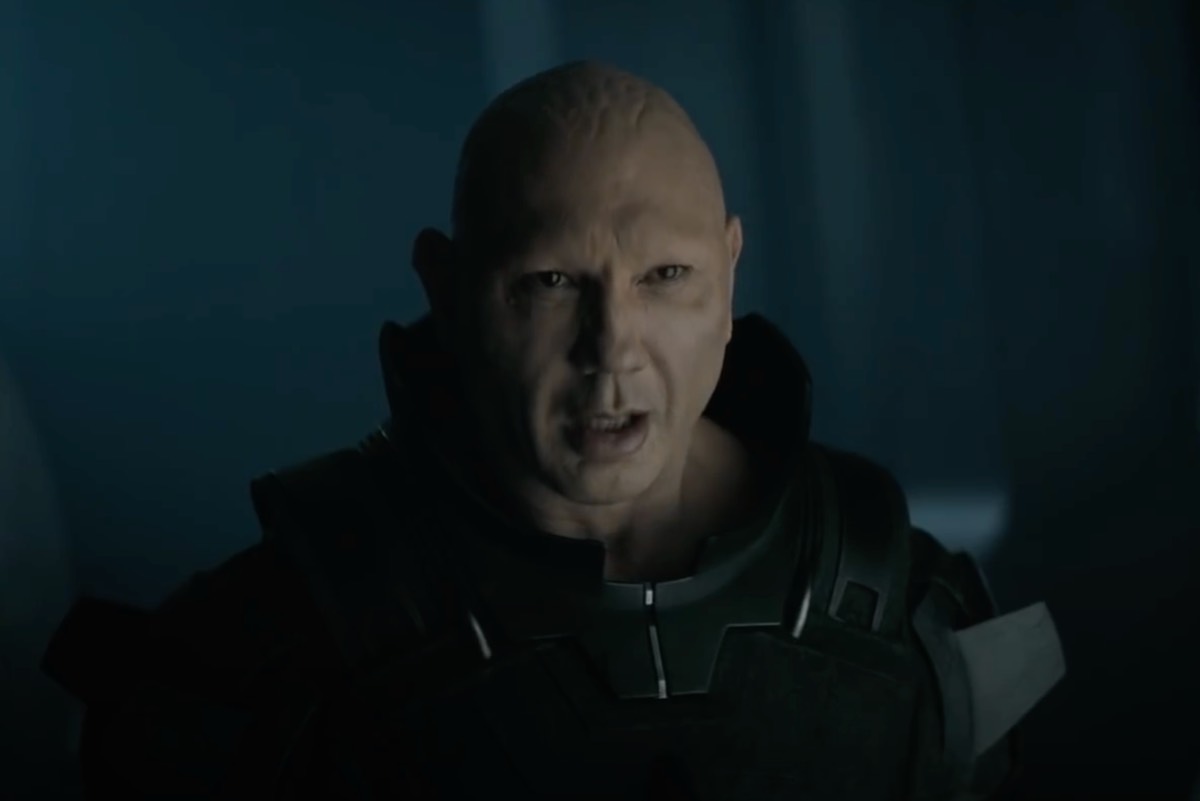 Dave Bautista plays Glossu Rabban, nephew to Baron Vladimir Harkonnen.YouTube/Warner Bros.
Dave Bautista plays Glossu Rabban, nephew to Baron Vladimir Harkonnen.YouTube/Warner Bros.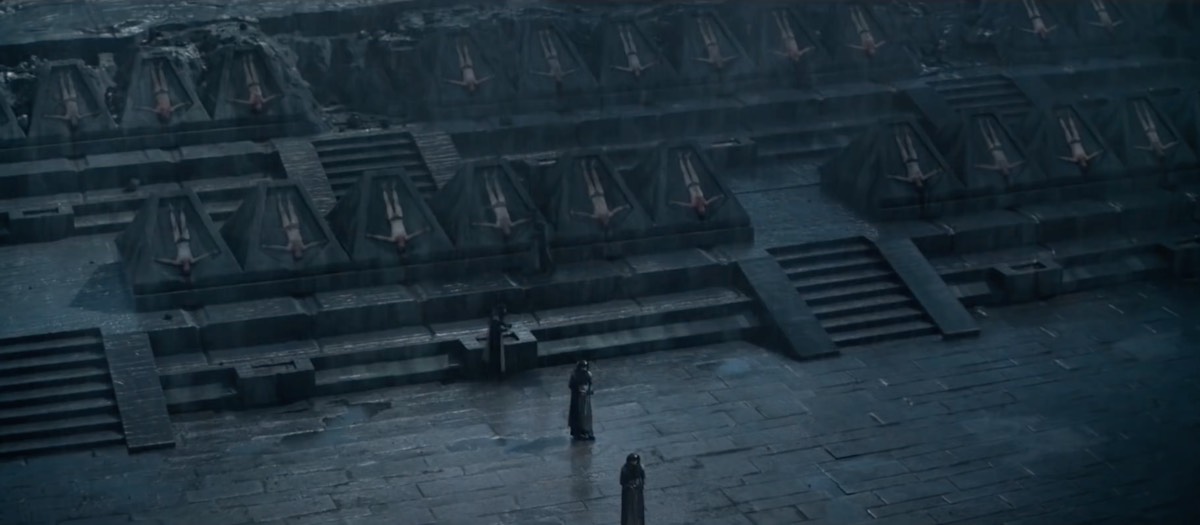 Anyone else reminded of the flayed men of Game of Thrones' Harrenhal?YouTube/Warner Bros.
Anyone else reminded of the flayed men of Game of Thrones' Harrenhal?YouTube/Warner Bros.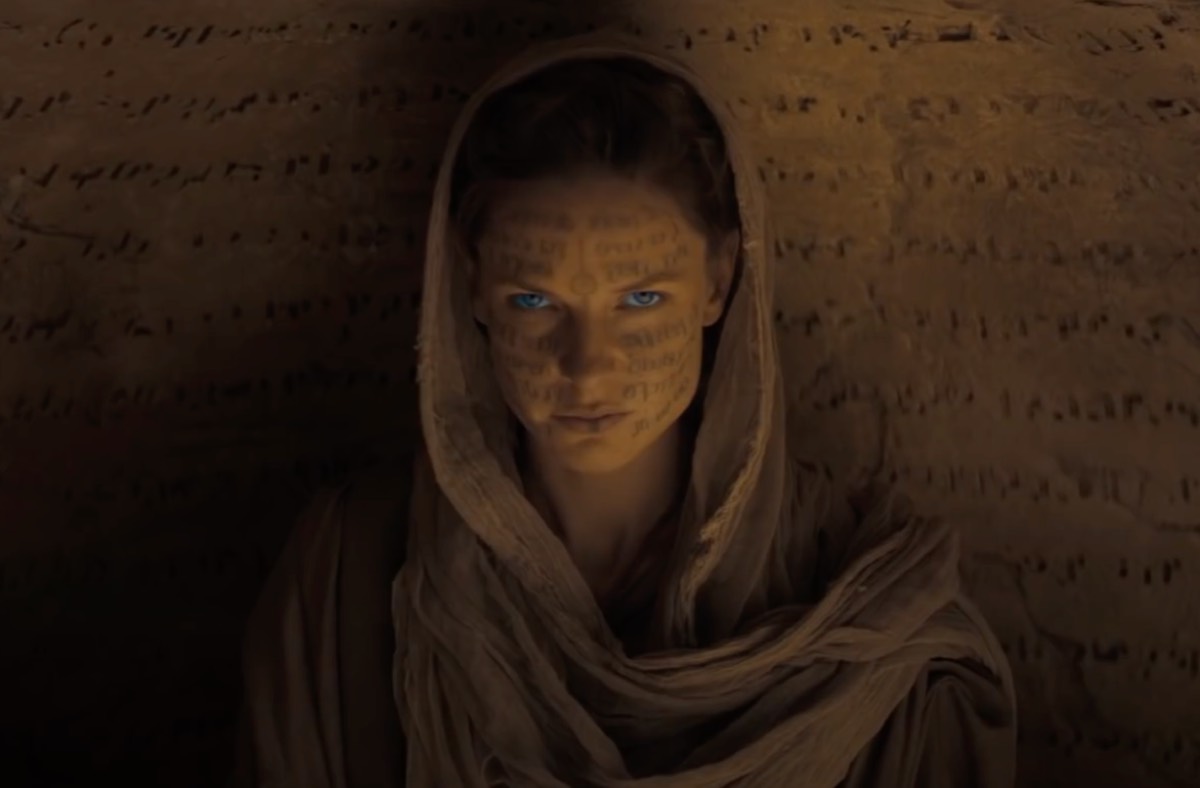 Note the writing on the wall... and on the face.YouTube/Warner Bros.
Note the writing on the wall... and on the face.YouTube/Warner Bros.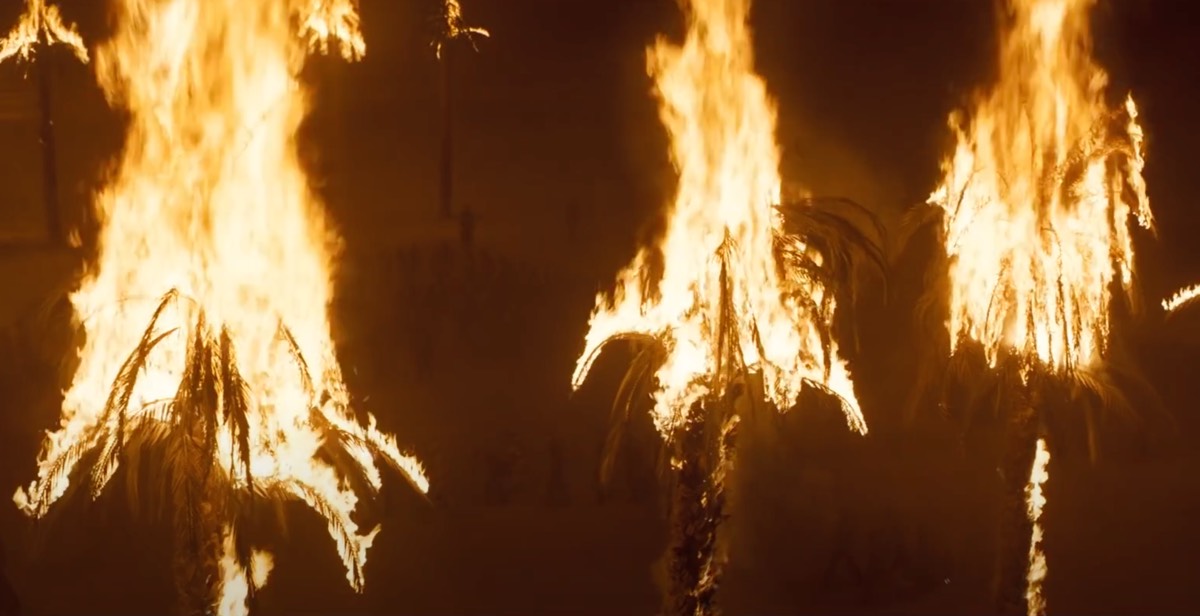 House Harkkonen makes a bold attack.YouTube/Warner Bros.
House Harkkonen makes a bold attack.YouTube/Warner Bros.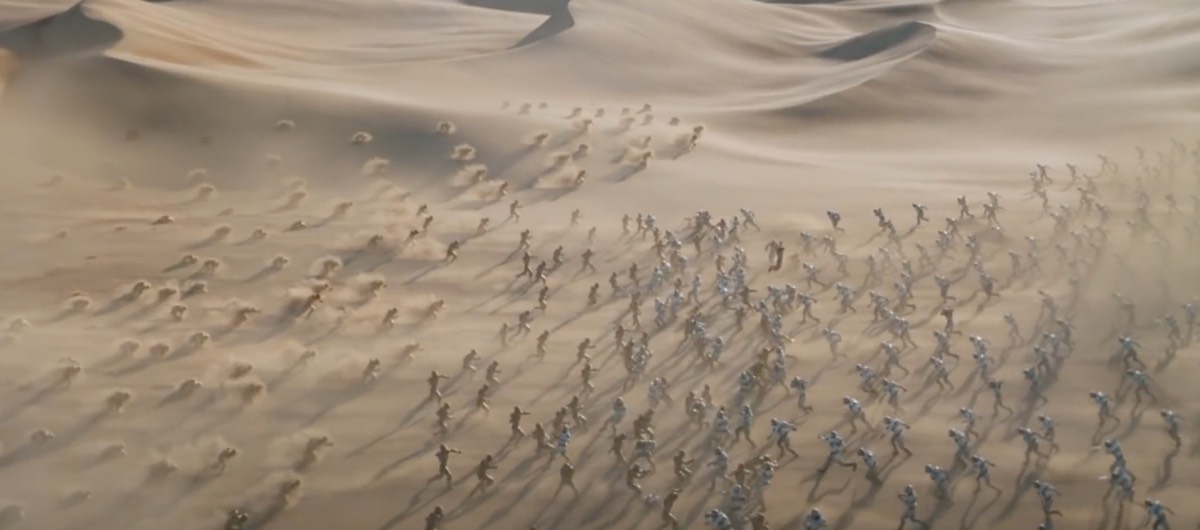 Armies clash on the sandy dunes.YouTube/Warner Bros.
Armies clash on the sandy dunes.YouTube/Warner Bros.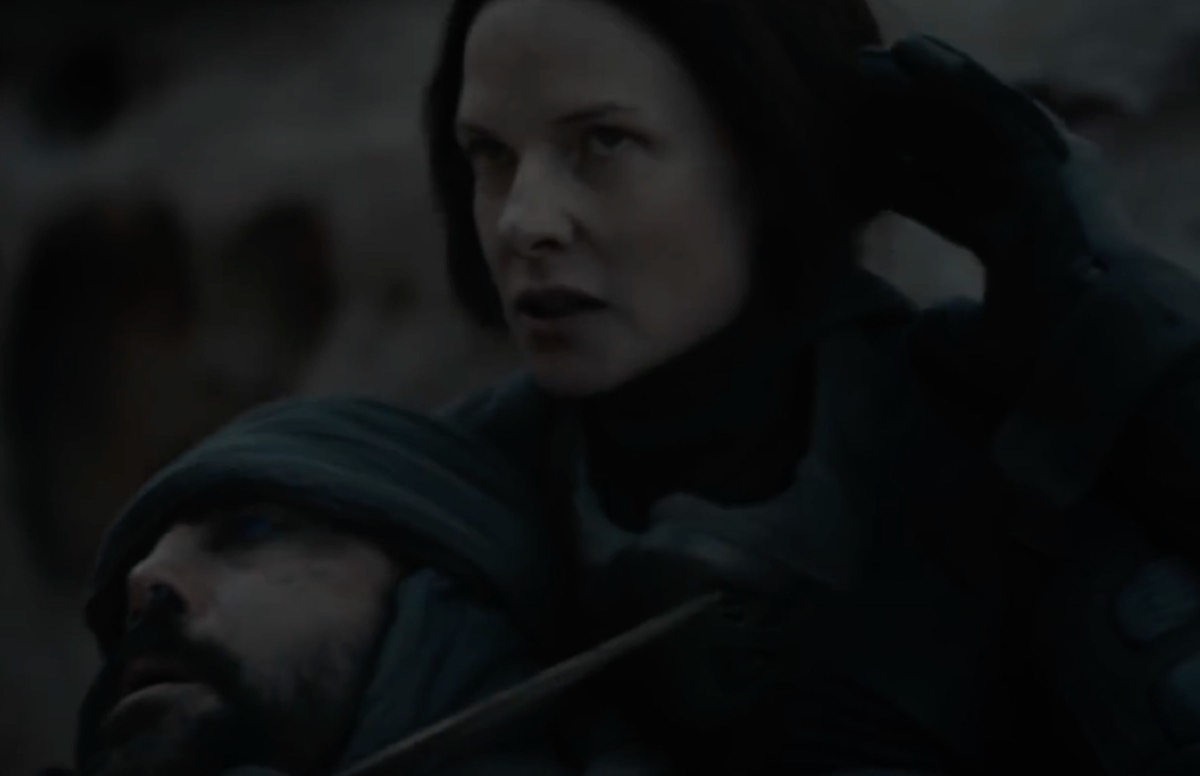 Lady Jessica vows to protect Paul.YouTube/Warner Bros.
Lady Jessica vows to protect Paul.YouTube/Warner Bros.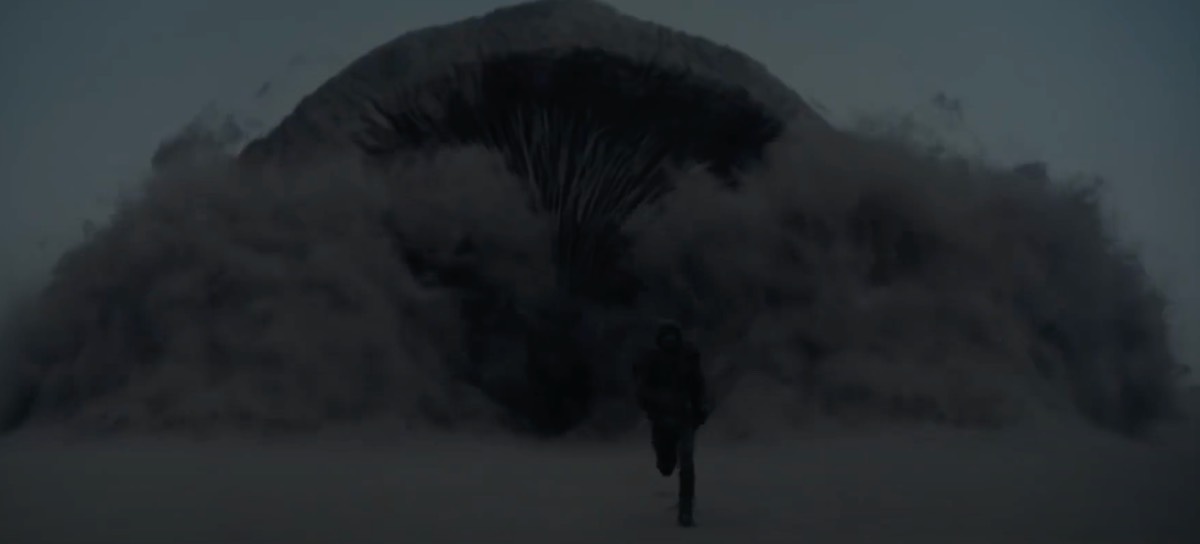 A sandworm emerges, just to keep things interesting.YouTube/Warner Bros.
A sandworm emerges, just to keep things interesting.YouTube/Warner Bros.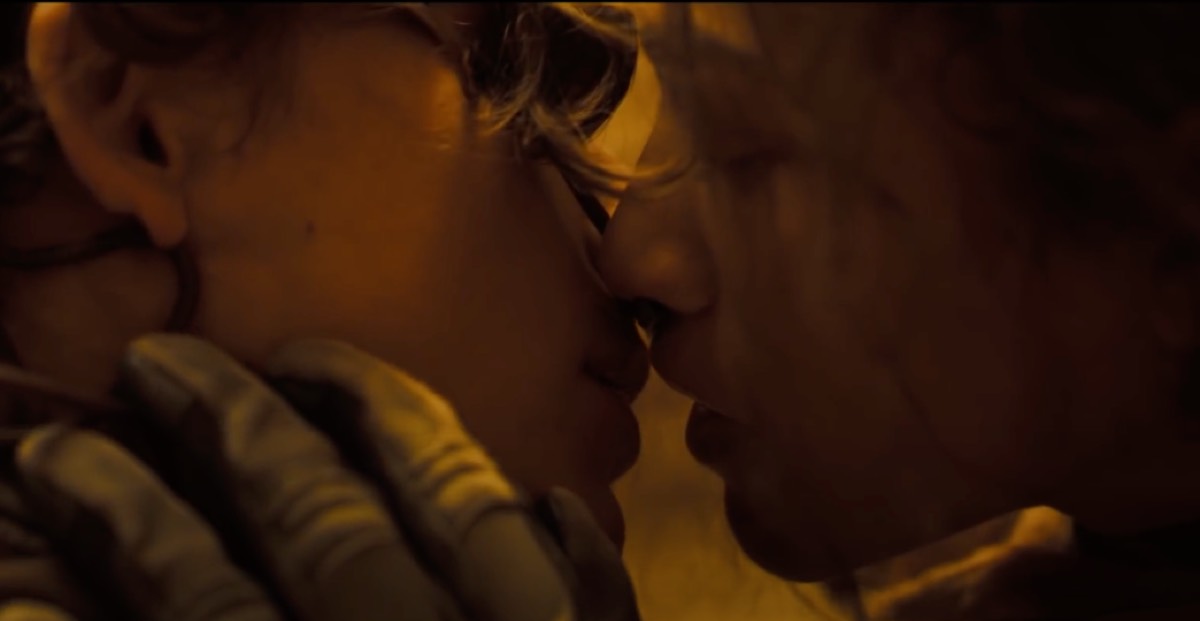 Love blooms.YouTube/Warner Bros.
Love blooms.YouTube/Warner Bros.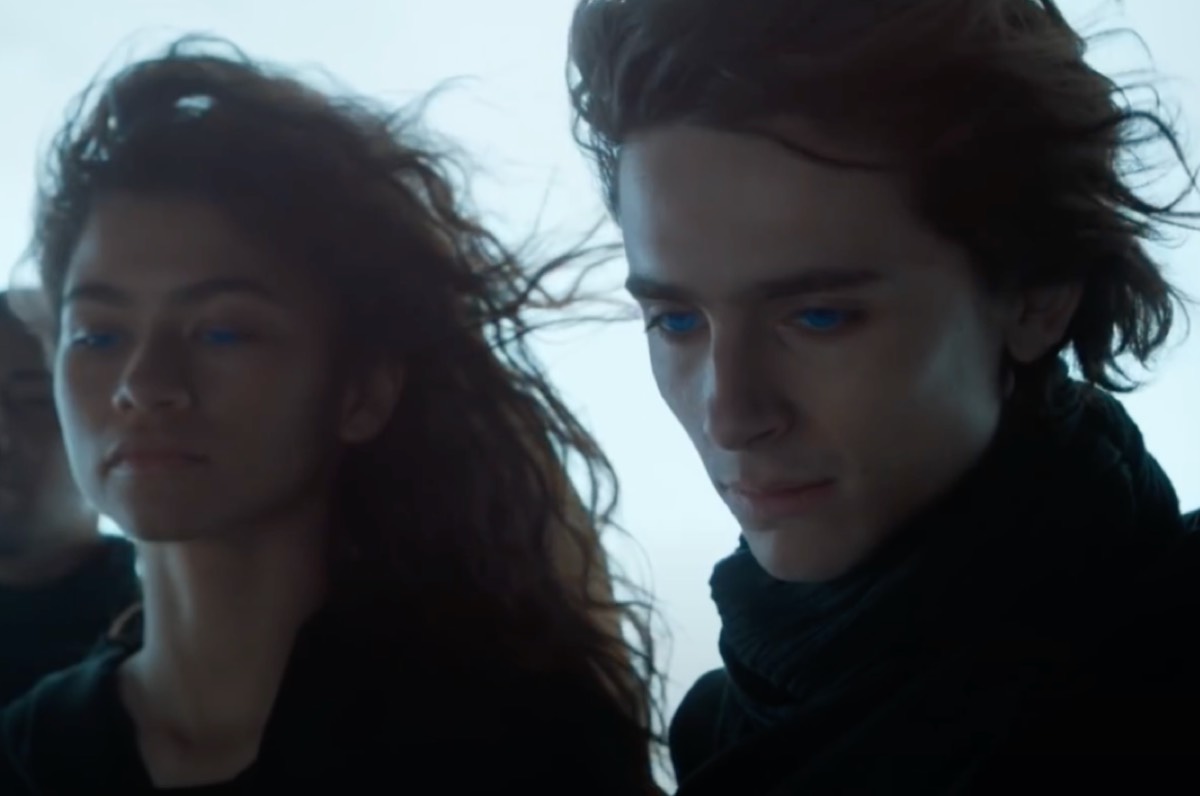 Chani and Paul ponder their next step.YouTube/Warner Bros.
Chani and Paul ponder their next step.YouTube/Warner Bros.
Even before the Paul-versus-Jamis match, Dune begins to lose momentum.
Paul and Jessica have just escaped the overthrow of their family's rule on the desert planet Arrakis—in which they witnessed so many of their family, friends, and allies get slaughtered. After that, we're stuck watching their slow and seemingly hopeless journey through the empty desert for some time before Jamis throws down his challenge.
I'd argue that this aimless, somber sequence, while imperative to sell the novel's eventual conclusion, would have been a more compelling start to Pt. 2—and it would have allowed the protagonists to recall the chaos that had just unfolded. From there, a sequel could also focus on Baron Harkonnen (the leader who overthrew Arrakis in the aforementioned coup) as he details his return to Dune dominance.
This brings me to another point about the new Dune that isn't necessarily a criticism but is certainly not what I'd prefer: the general absence of all things Emperor and Baron. To make this point, I'll rewind and recap the basics of Dune, Pt. 1.
In a universe that exists roughly 23,300 years past the modern day (hat-tip to Ars reader Uragan for that one!), humanity runs on spice, a special element mined exclusively on the desert planet of Arrakis. Interstellar travel won't work with any other material (or, at least, nobody in the intergalactic empire seems interested in researching eco-friendlier spaceship magic-juice). The rulers of the planet Caladan, House Atreides, have been selected to take over oversight and production on Arrakis, and we follow its ruling family—Duke Leto Atreides, his concubine Jessica, and their son Paul—across the galaxy to a seemingly doomed transition of power.
Denis is diaper-free
Every version of the first Dune story—whether prose, film, or TV—cuts back to House Harkonnen, which had previously ruled Arrakis, at this point. The Harkonnens are plotting to return to the desert planet and retake control of its valuable spice. Lynch's 1984 Dune in particular serves massive plates of cheese in its scenes of Baron Vladimir Harkonnen and his henchmen nephews announcing plans and motivations in almost needless detail. Unsurprisingly, Villeneuve pulls back on this level of '60s Batman TV energy, and he commits to a far more terrifying Baron. He employs mysterious lighting, incredible prosthetics, and electrifying CG effects of the Baron hovering as he sees fit. I'm fond of the results, along with the actor inside of the Baron's grotesque body (Stellan Skarsgård, Good Will Hunting, various Marvel films).In case it's not clear, Dune Pt. 1 is not aimed at Sting-diaper apologists. The giddiness that causes people to love Lynch's film is often hard to find in Villeneuve's interpretation. I wouldn't call it a criticism to say that this film goes in a wildly different direction, but it's worth setting the scene for fans' expectations of the new film.
My larger issue involves a distinct lack of setup for Dune's crucial betrayal. Compared to the 1984 film adaptation, viewers do not see nearly as much galaxy-wide political meddling. The mysterious Bene Gesserit cult whispers a hint of the Atreides' downfall, but if you haven't either read the books or seen the previous film, you're mostly left to make guesses and assumptions as to who would want to set House Atreides up for failure and why. Maybe that's what Dune, Pt. 2 is for?
This longer, stretched-out adaptation spends more time with Leto (Oscar Isaac) and Paul than its predecessor, and from their limited point of view, we ascertain a whole lot of "something ain't right." A transfer-of-power ceremony includes ominous glances. Production facilities on the ground in Arrakis appear to have been intentionally hamstrung, if not sabotaged. The original story's scheming and the intergalactic emperor's anxiety about House Atreides' rise in both popularity and mysterious power are absolutely buried. Is this narrative redirect the right call?
100 percent of your Chalamet smolder RDA
Villeneuve may argue that it is, since it allows him to better follow the Atreides as they move from a wet, Scotland-like Caladan to the imposingly scorched Arrakis (though we do occasionally peek at the evil Baron on his own turf).
Chalamet eagerly laps up the extra screen time as a likable flawed heir to so much intergalactic destiny. The absolute best thing about Dune, both for existing series fans and for series newcomers, is Chalamet's ability to thread the needle between "hero of destiny" and "could fail at any moment." This differs severely from the 1984 film, which almost instantly established Paul (then played by Kyle MacLachlan) as an obvious "chosen one," able to immediately survive a brutal fight, suffer through a Bene Gesserit test, and interpret mysterious dreams as optimistic visions. While the new film follows each of these storytelling beats, Chalamet's performance makes organic room for insecurity, anxiety, and fear, which settle next to a level of youthful cockiness that isn't necessarily the same as wisdom or confidence.
Chalamet's smolder makes up roughly 20 percent of the film (perhaps Atreides could have bottled that up and used it as spaceship juice?), and a bad actor would mean a bad movie. Fortunately, his performance is the film's rock, and he's a delight to cheer for, whether he's sticking his hand into a mysterious box or screaming and punching a wall after failing to help his old pal Duncan.
Good Guy Duncan: Bonds with some Fremen, kills some Harkonnen
The rest of the stacked cast mostly hold up their end of the Dune bargain, even if their characters are written without nearly as much destiny-questioning drama. Jason Momoa (Aquaman) drips confidence and charisma as Duncan Idaho, which primarily works because of how well Chalamet clumsily plays off of him. (Momoa's take on Duncan is basically a living Good Guy meme, and he cashes in roughly 4,000 big, musclebound smiles to nail it.) Josh Brolin doesn't quite reach Sir Patrick Stewart levels of bombast as Gurney Halleck, but his interpretation of the character is arguably a better match for the source books—and, again, Chalamet reacts well to Halleck's simmering unease.
Isaac's turn as Duke Leto Atreides sees him playing the most likable, understanding, empathetic dad and military leader in the cosmos. He always gets to be the "good cop" when an Arrakis local makes all nearby soldiers immediately raise their blades. If you play the drinking game of "every time Leto tells a guard to stand down," you'll be trashed by the end of Dune's first hour.
But Rebecca Ferguson is surprisingly sheepish as Paul's "bad cop" parent, with very few opportunities to remind viewers what a bad-ass heritage her character hides as a Bene Gesserit member. (Though, worry not, she does unleash The Voice when appropriate, and we see her toy with Paul's own Voice development in amusing manner early on.) Worse, the film's most fraught character, Dr. Yeuh, doesn't show up until way too late in the film's introductory scenes, and actor Chang Chen (Crouching Tiger, Hidden Dragon) isn't up to the tricky demands that follow. Instead of fitting into House Atreides' highest, most trusted ranks, his ominous interjections immediately feel out of place and suspicious, which is easily my least favorite thing about how Villeneuve introduces the Dune universe to new viewers.
Before watching Dune, get high... dynamic range
This is when I make the case for the other major reason to watch this film: Gesserit-damn, is this a beautiful piece of filmmaking. And I struggle to recommend watching this instant Villeneuve visual classic on anything less than a high-end TV capable of extreme contrast ratios.
Dune includes everything I'd hoped for from the man who helmed the visually arresting Blade Runner 2049. Villeneuve delights in gloriously lighting the rain-soaked planet Caladan and the dark, smoke-filled world Giedi Prime. (No, he doesn't fill their backdrops with unseemly, Blade Runner-esque sheets of neon.) Every costume is wonderfully ornate, from the insanely large collars attached to ceremonial dresses to the clearly Halo-inspired sand-armor getups worn by those who fight for House Atreides.Villeneuve's visual execution of planet Arrakis is something to behold. Rippling, sun-scorched waves of desert wasteland roll by in dramatic sequences, all pockmarked with either Fremen-hiding mountains or heaving, smoke-spewing spice factories. (Not to mention a few incredible sandworms, which have been redesigned to resemble a cross between water-preserving cacti and massive Venus flytraps, their massive teeth now wriggling like certain plants' trigger hairs.) House Atreides' insect-like aircraft are rendered impeccably in terms of how they shake off desert sand and lurch with realistic-looking amounts of weight. And the planet's primary fortress relies on copious, dramatic use of hot, blinding light, which cuts through the otherwise dark and shaded halls of its ornate interior—while still nailing organic levels of ambient occlusion and light bouncing off of nearby objects.
These images may translate just fine to a standard television screen, but having consumed and examined a ton of high-dynamic-range (HDR) content in films and video games, I couldn't help but be mesmerized by how much emphasis Villeneuve places on extreme contrast ratios. (The choice of what details to emphasize and what to obscure guides the eye toward the Atreides' impending downfall.) Will Dune look "way too dark" on your average budget-priced TV? I can't yet say, having only seen the film at a state-of-the-art cinema. But I suspect the movie's hunger to linger on extremely lit scenes will make OLED TV owners who opt to watch it on HBO Max feel pretty smart.
Verdict: You were going to watch it anyway, and I won’t stop you
If you've gotten this far, you're likely going to watch Dune Pt. 1 in one way or another. But whom should you bring along for the journey? I believe the new Dune does just enough to bring utter novices up to speed with the plot's basics, especially in some tidy opening sequences that see Paul access House Atreides' equivalent of Wikipedia (in the form of a pocket-sized gizmo that projects 3D holograms yet also looks like it was stolen from a 1980s antique shop). Yet I also think the larger backdrop of political intrigue is too severely pushed aside in favor of all things Chalamet. So once the film's final 30 minutes drain the previous two hours' momentum, you may find your most clueless watching partner tapping your shoulder and asking for help stitching things together.
But Star Wars this ain't, in terms of giving lower attention spans in the room enough jokes, horseplay, or silliness to grab onto. Before Dune passes the two-hour mark, expect any kids in your viewing party to decline the offer of a stillsuit and happily take a bathroom break instead. Plot your theater-versus-streaming decision accordingly.
I managed to be entranced just enough by the film to stay glued to my seat for the whole thing, even if it didn't leave me confident that Dune, Pt. 1 will sway enough of the masses to get a sequel greenlighted. In which case: sorry, runtime-starved Zendaya. They can't all be trilogies.
Note: Ars Technica may earn compensation for sales from links on this post through affiliate programs.
"flow" - Google News
October 21, 2021 at 08:00PM
https://ift.tt/3G2hmFP
Dune 2021 film review: The spice must flow, but it stops abruptly - Ars Technica
"flow" - Google News
https://ift.tt/2Sw6Z5O
https://ift.tt/2zNW3tO
Bagikan Berita Ini















0 Response to "Dune 2021 film review: The spice must flow, but it stops abruptly - Ars Technica"
Post a Comment